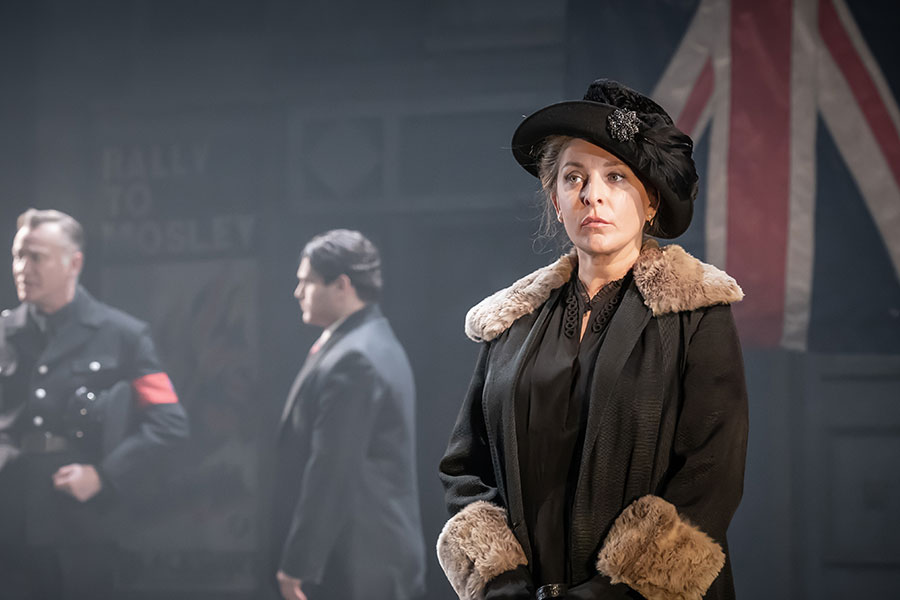The Merchant of Venice 1936 with Tracy-Ann Oberman – review
A new vision for Shakespeare’s problem play opens in Watford ahead of a tour

There’s an extraordinary moment at the end of this neat reimagining of The Merchant of Venice when Tracy-Ann Oberman, playing Shylock, drops character and her heavy Hebrew accent to remind us, as the houselights come up, that as a society we are “better together”.
Such heavy-handed messaging could feel, well, rather trite. But at a time of ever-increasing polarity around so many issues, not least immigration, it feels both urgent and deeply moving. This is a production that doesn’t shy away from the play’s more problematic elements, and by setting it during the London fascist riots of the 1930s, reminds us that such attitudes are anything but foreign.
Oberman’s performance is the anchor of her co-adaptor Brigid Larmour’s impassioned production. It’s a brave and deeply personal portrayal – she has based her pawn shop-owning Shylock on the story of her great-grandmother. Her delivery of the “If you prick us do we not bleed?” speech in act three is especially stirring, as she breaks between each question as if to highlight the sheer insanity of the idea they need to be asked. She certainly shows that Shylock works equally well played by a woman, not least due to the added note of misogyny in the pungent antisemitism shown towards her.
The character of Antonio (Raymond Coulthard) is recast as a staunch – and clearly homosexual – fascist, lacking some of the nuance seen in other more fulsome portrayals (this Merchant runs at a lick, at just over two hours including interval). However, it does mean his bromance with Bassanio (Adam Buchanan) and Gratiano (Xavier Starr) captures the thuggish underbelly of these Bullingdon boys. The climactic trial scene is especially gruesome, as they celebrate Shylock’s forced conversion to Christianity like they’ve just won a school rugby game.
There is also good work from Hannah Morrish, whose Portia is modelled on Diana Mosley (née Mitford), showing not just her vanity but her lust for power at any cost. And Priyank Morjaria and Gráinne Dromgoole make a convincing Jessica and Lorenzo, whose Christian relationship heaps added misery on Shylock, compounded by the fact she is a single mother.
Liz Cooke’s designs capture the Dickensian greyness of the prewar East End and the Battle of Cable Street, in which Mosley’s blackshirts were beaten back, is evoked not just by Sarah Weltman’s glass-smashing sound effects but by a handful of onstage audience members who contribute their chairs to form a barricade (I half expected Enjolras to appear and burst into song). It makes for an energetic and highly theatrical finale to this bold and lucid interpretation.












